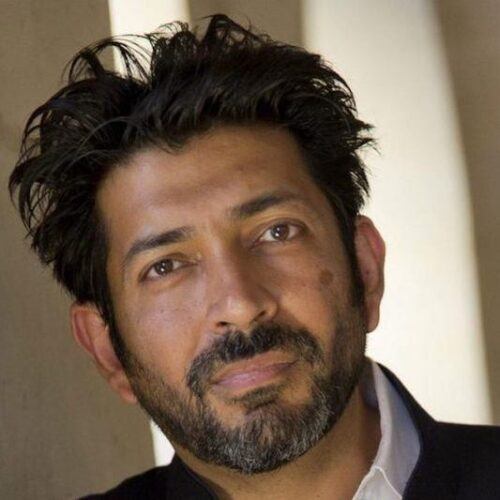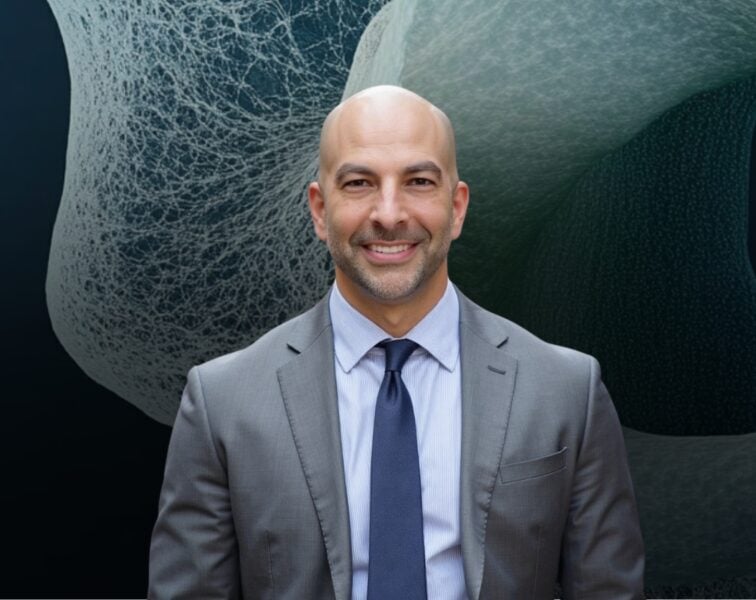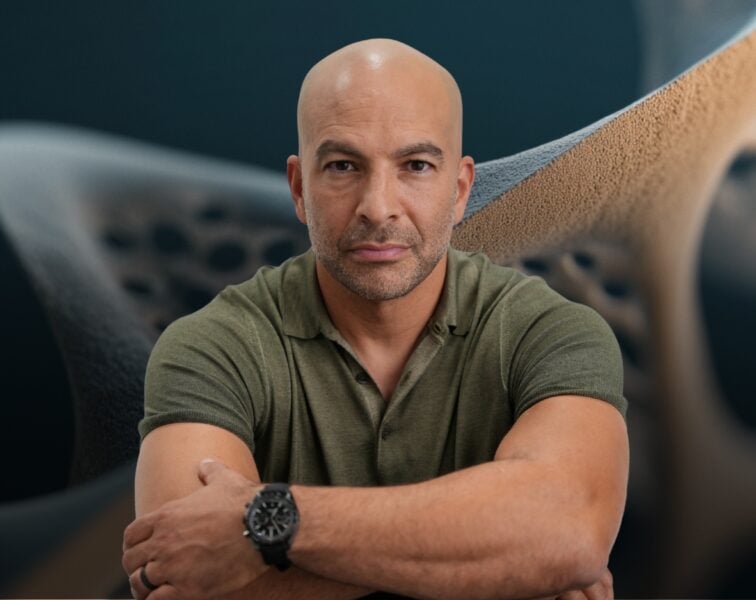Siddhartha Mukherjee is an oncologist, Pulitzer Prize-winning author, and previous guest on The Drive. In this episode, Sid discusses many of the subjects of his latest book, The Song of the Cell, including the incredible discovery of the cell and how it transformed medicine. He explains the evolutionary drive to go from single-cell to multicellular life and unpacks the four different types of cell-based therapies and the problems they are attempting to solve. He also provides the latest in gene therapy, such as CRISPR, and the ethical questions around human gene editing. Additionally, he touches on a number of fascinating topics, such as the challenges of medical science, the human brain, learning styles, his writing process, mental health, and more.
Subscribe on: APPLE PODCASTS | RSS | GOOGLE | OVERCAST | STITCHER
We discuss:
- How the cell brings the genome to life, and how Sid’s recent book fits into his prior work to tell a story [2:30];
- How the germ theory of disease and an understanding of the cell fueled a big leap in medicine [9:45];
- What is the evolutionary drive for multicellular life? [17:15];
- Four types of cell therapies and the challenges of gene therapy [26:00];
- CAR T-cell therapy: promising gene therapy for cancer [36:30];
- The possibility of using gene therapy to treat germline mutations like sickle cell disease [41:45];
- The incredible revolution of gene editing with CRISPR [45:15];
- Ethical questions around human gene editing [52:30];
- The complex role of genetics in mental illness [1:01:30];
- Two types of problems in science: the “eye in the sandstorm” problem and the “sand in the eye” problem [1:06:15];
- Understanding neural networks: an example of the “sand in the eye” problem being solved [1:08:45];
- Importance of learning by doing: comparing the learning styles of a doctoral student to a medical student [1:16:30];
- Sid’s unique and brilliant style of writing [1:20:45];
- Falling as the leading cause of accidental death: a liability of multicellular existence [1:25:00];
- Sid’s struggle with depression and his desire to change the stigma around mental illness [1:29:15]; and
- More.
Get Peter’s expertise in your inbox 100% free.
Sign up to receive An Introductory Guide to Longevity by Peter Attia, weekly longevity-focused articles, and new podcast announcements.
How the cell brings the genome to life, and how Sid’s recent book fits into his prior work to tell a story [2:30]
Give us a sense of where your most recent book fits into your prior work
- The Song of the Cell is part of a trilogy and possibly a quartet that Siddharthais working on, broadly called “The Life Series”
- The attempts of these books is to try to explain and understand how we understand life and how we’re manipulating life, living things (particularly humans)
- The first book was The Emperor of all Maladies, the second, The Gene, and now The Song of the Cell
- The best place to probably start is with The Gene
- The gene being the smallest unit of information
- As you end The Gene, you realize that genes which are encoded in the molecule DNA, are lifeless
- They don’t have any autonomous life
- A gene is just a molecule, it’s a chemical, and it’s the cell that brings it to life
- Without the cell, all of that code would be useless
“I likened the human genome (or any genome) to a score of music, but a score is lifeless. There’s no music in a score, it’s just a code. You need a musician to bring it to life, and the cell is that musician.”‒ Siddhartha Mukherjee
- There’s no music in a score, it’s just a code
- You need a musician to bring it to life, and the cell is that musician
- Hence the title of the book, the Song of the Cell
- The second book, to some extent is The Song of the Cell, and then the third book, bizarrely enough, is the first book (The Emperor of All Maladies)
- It’s sort of like Star Wars, the prequel to the sequel to the prequel
- Where you learn about what happens when cells become average
One way to read the series of books‒ start with The Gene, move on to The Song of the Cell, and finally end up with the dysfunctional average cell, and what happens to it when its genes go haywire (The Emperor of All Maladies)
- A completely different way would be to read them as they appeared
- They progressively go downwards and delve deeper and deeper into mysteries of that history
- The first book was of course a history of cancer and cancer therapy.
- What did we not understand about cancer? Obviously genes and genetics
- What did we not understand about cancer in terms of its cell biology when the cancer genome atlas was completed?
- And what do we understand now?
If you read chronologically from the first to the third, you would get a different kind of story
In The Song of the Cell, that era of science had fewer tools and their discoveries are mind blowing
- This might be tainted by a bit of recency bias because Peter read the books in chronological order, and he just finished reading The Song of the Cell (which he enjoyed immensely)
- He felt more surprised and in awe of the characters in this book than the previous books
- Peter notes, “The characters of this story blew my mind even more because of the time and the era in which they had to do their science. There were fewer tools at their disposal.”
- The characters of that book are uncovering things that are very fundamental
- If you were to do a historical comparison with the history of genetics, you would start with Gregor Mendel (being the pioneer here)
- There is an enormous period of silence that follows Mendel (almost 40 years) in which basically nothing happens
- Then his work is ultimately picked up by folks like Thomas Morgan and others
- But for a long period of time, nothing happens and nothing is relevant
What you see in this book is very different because you see a continuation of development
- After the microscope is invented in the 17th century, you see a gradual blossoming of science
- Ultimately ending up with someone like Rudolph Virchow, who can make really audacious statements that are missing in the history of genetics until much later
- The audacious statement that Virchow makes is every function that we carry out, regardless of its origin or regardless of what that function is, is a consequence of cellular physiology
- “We, our cells and everything that we do is cellular, is a consequence of something happening in some cell.”
- Other statements he says (which are equally audacious), “Every illness is the consequence of some cell behaving incorrectly”
- These statements are made in the mid to late 19th century, almost contemporaneous with Mendel
You have enormous sets of leaps in cell biology, which is why this book might feel that these characters are doing things while genetics is still plotting its way, trying to understand Mendel’s first very important paper; and there’s a remarkable 40 years of silence, whereas in cell biology, there isn’t that 40 years of silence
- Peter thinks we take for granted the ingenuity that was necessary to even build the tool to permit their discoveries
- What the process is like to put together a microscope, to grind the glass and create the lens to give a window into this otherwise invisible/microscopic world
- Siddhartha tried to make make one of Leeuwenhoek’s microscopes, and it was not an easy task; it was a disaster
- And Leeuwenhoek made 500 of them
- These are single lens microscopes, and they are about the size of half a sheet of paper
- The lens is smaller than the size of your eyeball
- There is a sense of the enormous amount of labor of love put into making this thing that’s mounted with tiny screws and tiny little apertures, so that when you look through your eye through the lens in a droplet of water, you can actually see these microscopic forms
There’s an enormous sense of wonder about how people even began to see these and how they found them and what the consequences of that finding were and are
How the germ theory of disease and an understanding of the cell fueled a big leap in medicine [9:45]
- In Peter’s book (which Siddharthaha has read), he talks about this transition from medicine 1.0 to medicine 2.0 (and then the transition from 2.0 to 3.0)
- He talks about that first transition as two big events, but they were really transition of process
{end of show notes preview}
Would you like access to extensive show notes and references for this podcast (and more)?
Check out this post to see an example of what the substantial show notes look like. Become a member today to get access.

Siddhartha Mukherjee M.D., Ph.D.
Siddhartha Mukherjee was born in New Delhi, India. He holds a BS in biology from Stanford University, a PhD in immunology from Oxford University (where he was a Rhodes Scholar), and an MD from Harvard Medical School. He completed his internal medicine residency and an oncology fellowship at Massachusetts General Hospital. Dr. Mukherjee is an assistant professor of medicine at Columbia University Medical Center. He is a hematologist and oncologist who specializes in lymphoma, myeloma, and myelodysplastic syndrome at NewYork-Presbyterian / Columbia University Irving Medical Center.
He is the author of the Pulitzer Prize-winning book, The Emperor of All Maladies: A Biography of Cancer; The Laws of Medicine: Field Notes from an Uncertain Science; the New York Times bestseller, The Gene: An Intimate History; and his most recent book was named a New York Times Notable Book of 2022, The Song of the Cell: An Exploration of Medicine and the New Human.
Dr. Mukherjee’s research focuses on the biology of blood development and malignant and premalignant diseases such as myelodysplasia (MDS) and acute myelogenous leukemia (AML). His goal is to develop novel drugs to treat these diseases. [Columbia]
Twitter: @DrSidMukherjee
Website: siddharthamukherjee.com



